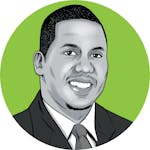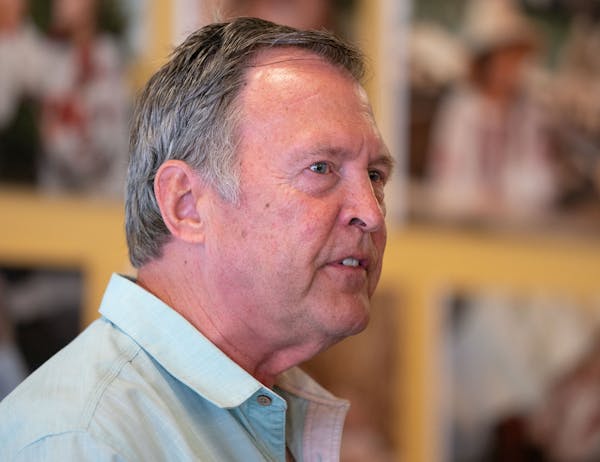Days after Minneapolis City Council Member Michael Rainville blamed Somali American youth for a rash of violent crime over the July 4th weekend in a rant filled with racism, the dialogue centered on Michael Rainville.
Will he be reprimanded or censured by his Minneapolis City Council colleagues for blaming a marginalized community for everything? Will this cost him politically? Will he be forgiven by the community he has harmed? What are his paths forward?
But the only thing that matters right now is the damage attached to his words. He has hurt the Somali American community in Minnesota and beyond in ways he cannot understand.
The conversation has shifted, however, to the offender instead of the offended.
It's a familiar response. Powerbrokers who find themselves in this predicament get redeemed with the help of supporters in the community — do not forget the cheers in the background as Rainville made his comments — through calculated moves that focus on their futures and ignore the pain left behind.
It is probably just a matter of time before Rainville assembles a group that includes three Black folks and a local civil rights leader in one of those "I have sinned" moments familiar to politicians. Then, he might release a photo that shows him holding hands with members of the Somali American community and walking through troubled pockets of town. At some point during that photo op, he probably will stop and place his hand on the shoulder of a Somali American child and smile.
Now, I am not sure he will do all of these things. I just know the playbook and the circumstances for Black and brown folks who live here.
The greatest privilege of white kids in Minnesota is that they are all treated as individuals.
The white kid who gets busted for drunken driving is just a kid who made a mistake. The white kid who is caught with drugs or a weapon is just a young person on a wayward path. The white kid who assaults an adult or a family member just had a difficult childhood. The white kid who is arrested for fighting at a campus party? Well, he just had a bad night.
More than anything, white kids are humanized. They do not face these sweeping generalizations that can follow them throughout their lives. When they fall, there are no demands for a gathering of white leaders to help fix what ails them. Those white kids do not represent the white community — only themselves.
White kids in Minnesota grow up with the benefit of the doubt and the assumption that they are inherently good. Black kids must prove they are not, what some here believe, a part of a community that is inherently bad. They also know any misstep could impact their lives and prompt immediate judgment, not because of their actions, but because of what folks might believe they represent. And they know they will not have the same resources and privilege to facilitate their futures. With those obstacles ahead, Rainville's words can kill their dreams and convince people to judge them without ever granting them a chance to blossom and stumble and evolve and succeed and learn. They will not receive the same grace many white kids here will be afforded.
Rainville made it more difficult for Somali American youths to attain those opportunities when he said he planned to sit down with Somali American leaders and tell them "that their children can no longer have that type of behavior down at the Stone Arch Bridge and Boom Island Park."
Wait.
Every Somali American child in Minneapolis was hanging out at the Stone Arch Bridge and Boom Island Park? Did he count?
Let's be honest here: Rainville will get past this. But that racist assessment will stick to an abundance of innocent boys and girls.
To be both Somali and Muslim right now is an experience I will never fully comprehend. Reports of hate crimes and blatant racism have been more frequent in recent years. Yet, the Somali American community has made Minnesota better in every way.
Rainville discussed the July 4th weekend violence, however, as if he were talking about a group of outsiders. The message: Get your community under control or else. Rainville, a powerful leader in Minneapolis, turned every Somali American child into "them." That tag will only perpetuate stereotypes and intensify challenges for a group of people who have been fighting for inclusion and acknowledgement since the day they arrived.
While I respect the calls for conversation and a path to forgiveness — Rainville has apologized — by leaders in the Somali American community, I think it's unfair that marginalized communities are continuously placed in this position.
Why must we create a path for redemption while our wounds still bleed? Why are we asked to do anything but heal in these moments? Why are we here again?
Rainville had a chance to show the Somali American community he values its diversity, individuality and collective humanity. He had the opportunity to talk about specific concerns instead of grandiose charges at a community gathering.
Instead, he took the easiest, most harmful route. Rainville figured his power was more important than the pain it produced. That happens when you've decided the people you hurt do not matter as much as the folks who cheer for you.
Medcalf: Edina ambush that left teen with brain injury is a wake-up call

Medcalf: L.A. wildfires remind us to cherish what we have before it's gone

Medcalf: Why I'm choosing 'you' as my theme for 2025

Medcalf: Meet these Twin Cities folks under the radar but doing big things in the community


